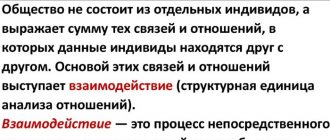Every mother in her soul considers her child the smartest, most capable, the best. Yes, this is how it should be: after all, we love our little devils! And all the same, when the question arises about the abilities and, especially, the giftedness of a child, disputes, dissatisfaction, doubts, disappointments, and contradictions immediately arise. Moms and dads listen with resentment to the words of a kindergarten or school psychologist: “He doesn’t have any special abilities,” knowing firmly in their hearts that their child is more suitable than anyone else for the role of the future Lobachevsky or Maya Plisetskaya. And at the same time, seeing how the neighbor’s girl is praised for her musical talent, they are indignant: “Well, what can you see there, at 5 years old!”
What are abilities?
The dictionary says that " the ability
— individual psychological characteristics of a person necessary for mastering a certain activity and its successful implementation.”
TSB clarifies that “ abilities
are not reduced to the knowledge, skills and abilities that an individual has. They are revealed in the speed, depth and strength of mastering the methods and techniques of some activity.” If we express this in simpler language, it turns out that abilities are the properties of our brain, the characteristics of the brain’s perception and processing of information.
Everyone has the general abilities that allow a child to survive and develop according to age. We will talk about special abilities, or as they are also called, giftedness
(some psychologists insist on the name “intelligence”), which determines a person’s future success in certain areas of activity.
What is giftedness?
TSB: “ Giftedness
is
a high level of development of a person’s abilities, allowing him to achieve special success in a particular field of activity. There are general and special talents. Thus, general mental talent is manifested in mastering all types of activities, the successful implementation of which requires certain mental qualities (for example, good memory, concentration, etc.). Special talent is associated with various types of activities in which it is most revealed. The main signs of high giftedness are: early manifestation of abilities, rapid pace of knowledge acquisition, formation of skills and abilities in any activity, inclination and interest in it, elements of originality, creativity in activity.”
That is, for example, a successful sales manager, store director, inventor or innovator (don’t laugh!) is most likely a person with general talent. But a Haiku master or an artist (again, not from the Lenin alley, but the same Sazhaev, for example) is a visual talent...
It should be borne in mind that childhood talent does not guarantee the talent of an adult. Accordingly, not every talented adult showed himself to be a gifted child in childhood.
Giftedness, talent, genius in psychology
The definition of potentially high abilities was given by Teplov, who designated them as qualitatively unique combinations of qualities that contribute to achieving success in a certain type of activity. The concept of “giftedness” in psychology is not equal to genius or talent. These definitions mean that a person is the highest level of intellectual or creative development of an individual. Potential capabilities refer to those that may not be visible during life and the intensity of their expression depends on whether they were involved in the development of the given at birth.
Where does giftedness come from?
There are two theories about this. One says that a child is born with a certain set of abilities, which determines his fate .
On the basis of this theory, myths grew about “inability to speak languages”, “hands growing from the wrong place”, “arithmetic cretinism” and so on. In fact, a very attractive theory that relieves the little man and his parents of all responsibility. In short, someone born to crawl cannot fly.
The second theory, by the way, the most sympathetic to the author, states that from birth a person is endowed with the makings of all abilities (naturally, limited by human physiology. We still won’t be able to fly or fall into suspended animation like frogs in winter).
And ideally, everyone could become Einstein, Lomonosov and Da Vinci in one bottle (what a horror!). But the fact of the matter is that nature gives us only “seeds” of abilities, for which we need to prepare suitable soil, plant them in time, water them and care for them. It is very difficult to guess the moment when the ability is ready to begin to develop, and to give the child everything necessary for development at this time. But sometimes it still works. And then a REAL artist, mathematician, musician, economist, cabinet maker, or a brilliant schemer (as an option) grows up in the family (or not in the family, depending on your luck).
The development of talent can be figuratively compared to training the muscles in the human body. All people have the same set of muscles. But different groups develop in different people, and in some people individual muscles even atrophy.
Is there a gifted personality type?
Scientists and psychologists are still arguing about whether it is possible to separately identify a gifted personality type. What defines it? Is it possible to develop giftedness? Scientists tend to believe that the development of this character trait is directly influenced by three factors: type of intelligence, genetics and upbringing. Together they form a person as a person.
A study published in the journal High Ability Studies in 2011 suggests that giftedness can be assessed using five personality traits:
- extraversion;
- conscientiousness;
- openness to experience;
- friendliness;
- neuroticism.
To find gifted people, scientists conducted a meta-analysis of data from an experimental group of almost 8,000 people. They were assessed not only on personality traits, but also on 83 other factors. As a result, they could call only 3,244 people gifted.
It turned out that not all of the supposed five personality traits had an impact on the development of giftedness. Thus, extraversion, friendliness and conscientiousness were found in “non-gifted” people. The study showed that age and gender, as well as place of birth, had no effect on giftedness.
Types of giftedness
It should be remembered that a child’s interest in the information received is not yet giftedness. Giftedness begins when the child produces the results of processing the information received.
Different psychologists and teachers identify different types of giftedness. And therefore we can assume that any division is very conditional. Let's look at one of the classifications.
Artistic talent
Even strangers gather to listen to these little Singers. The movements of such a small Dancer are trying to be repeated by the audience in the hall. The paintings of little Artists evoke a storm of emotions in the soul. Listening to the little Reader, the audience cries... But pay attention! If a child has excellent hearing, this is not yet gifted. Giftedness is expressed in an understanding of music, or in “inner hearing” - such people compose music, or make arrangements, orchestral transcriptions... And let alone the fact that many children in kindergarten and primary school sing out of tune or vice versa, correctly - and there is no need to say - These are just age-related features of the development of vocal cords. The same thing with the drawing. Drawing a house or a recognizable dog is not talent. It's more of a combination of good spatial reasoning and good fine motor skills. But if the color spots on the sheet make you shiver, or, looking at the clumsy bear, you say, “Wow, so angry!” - here one can already suspect giftedness.
Logical-mathematical talent
This is not the ability to count well. Counting is arithmetic, and a child who learns to quickly add, subtract, multiply and divide early will not necessarily show mathematical talent. Young mathematicians operate with symbols with ease. It is not difficult for them to understand that 3 is not three hares, not three cups, not three dots and not three counting sticks. 3 is 3. It is a number that can become anything. In the future (provided, of course, that the child devotes himself to mathematics), such a person will be able to use a formula to express the smell of a rose or the infinity of the universe. Children at school can easily learn not only algebra itself, but also chemistry, physics, computer science - all areas where we deal with signs and formulas.
It is the ability to think logically and draw conclusions that allows you to make great discoveries. And in a sense, logical-mathematical giftedness is close to general giftedness. It allows a person to achieve success in the exact sciences, practical activities and even art! After all, without a sufficiently developed imagination, it is difficult to dare to declare the existence of a quark or the heliocentric structure of the “world”.
Spatial aptitude
This is the ability to think spatially. Good designers, engineers, fashion designers and cutters, designers with various specializations, architects, surgeons, and simply representatives of certain working specialties (for example, carpenters) are those who have fairly developed spatial thinking.
Linguistic talent
This is not the “ability for languages” as one might think. Everyone has the ability to learn foreign languages: everyone learned their native language at one time, and the brain processes responsible for understanding and reproducing ANY language are the same. The ability to learn another language depends rather on the presence of strong motivation, a well-trained memory (which, in turn, is perfectly trained by memorizing foreign words and expressions) and a learning methodology that is adequate for the learning situation.
Children with linguistic giftedness have the ability to expressively, interestingly, excitingly, fully and clearly convey information to others using linguistic means. In the future, they may become poets (not to be confused with poets), writers, journalists, or copywriters. And if you have the ability to persuade - lecturers, public people.
Physical talent
In the sense of the body, not the subject “physics”. Such children, as a rule, demonstrate success in various sports and have excellent control of their body. In the future they can become champions, dancers, circus performers.
Leadership talent
Or attractive. These people set the rules of the game, they are followed, they are obeyed, they strive to communicate with them, their charm or pressure is almost impossible to resist.
Spiritual giftedness
Giftedness, which is manifested in the creation of new spiritual values and serving people.
How to Identify Extraordinary Opportunities
We recommend: Autism: what is it?
Diagnosis of giftedness involves the use of standardized tests. They allow you to assess the nature, degree of expression and type of giftedness. Such techniques can be used not only by psychologists and teachers, but also by parents.
The key difference between diagnostic methods is their focus on the child’s age. For example, using the “Gifted Map” method, you can determine abilities and evaluate them in children 5-10 years old. The “Gifted Card” consists of 80 questions that relate to a certain extent different characteristics of the child (his activities, behavior). Responses are assessed on a scale from 1 to 4, which allows, simultaneously with diagnostics, to give a forecast of probable abilities.
How are abilities determined?
As a rule, using tests.
Here are examples of some of them:
- Wechsler test https://psynet.carfax.ru/tests/wechsler.htm
- Raven's test https://www.testology.ru/spm/index.htm
- Luscher test https://www.telegraf.ru/misc/psycho/psich15.htm
- Rosenzweig test https://azps.ru/tests/3/test5.html
Unfortunately, many schools or kindergartens “identify” abilities (or lack thereof) based on one-time testing. But the child may simply not express himself on this particular day. Maybe his favorite toy broke and he's worried? Or does his stomach hurt? Or is ARVI starting? What results can we talk about in this case? Therefore, some “smart” schools “start” preparatory courses, preschools, kindergartens... Of course, sometimes this is nothing more than “chopping cabbage” and a formality. But still, sometimes this is done in order to give the child the opportunity to express himself during a year or several months of classes. So-called psychological and pedagogical monitoring
, which is currently recognized as the most adequate form of identifying signs of giftedness.
But even if we are not talking about entering school, it should be remembered that assessing a child as gifted should not be an end in itself
. In any case, the identification of gifted children must be linked to the tasks of their education and upbringing.
It is also necessary to take into account the presence of giftedness dynamics. A child who was “diagnosed” with giftedness, for example, at 3 years old, at 6-7 years old may show a different type of giftedness, or not show it at all. This is due to the fact that, as we have already said, suitable conditions are needed for the development of abilities.
Giftedness often manifests itself in the success of activities that have a spontaneous, amateur nature. For example, a child who is passionate about technical design may enthusiastically build his own models at home, but at the same time not show similar activity either in school or in specially organized extracurricular activities (club, section, studio). In addition, gifted children do not always strive to demonstrate their achievements to others. Thus, a child who writes poetry or stories may be hiding his hobby.
Fast development
What does the concept of giftedness include at an early age? A gifted child first appears between three and five years of age. This is the time when the formation of his personality takes place. The baby begins to realize his abilities and talents, realizing that he is doing something very well. The child, comparing himself with his peers, begins to realize that he is different from them.
A clear sign of giftedness is progressive development
If a child at 3-4 years old can already read syllables, then you should pay special attention to him. After all, this child has his own rhythm of life, and soon he will no longer be interested in communicating with his peers
He will reach out to older children or adults. With an ever-increasing pace of development, we can talk about genius.
At what age can a child’s abilities be determined?
Almost anywhere. But still, some age-related characteristics of giftedness exist. For example, poetic talent most often manifests itself in adolescence. But very young children often show signs of general talent. This is due to the fact that due to age, for example, for manifestations of artistic talent (drawing, dancing, singing), they still do not have enough physiological development, for manifestations of academic talent (in certain areas) - there is not enough information and knowledge. But an experienced psychologist or teacher, an attentive parent will always see an interest in something in a child and support his success.
Talent
Talent is a person’s ability to achieve success and recognition in areas in which initial potential is realized.
The degree of inherent potential determines the ability to act originally and independently, to solve assigned tasks, regardless of their specificity and complexity. Talent presupposes the potential to show inclinations in the field, offering new ideas, implementing original and perfect actions, and achieving respect at the public level.
The child shows the first signs of inherent talent, which is realized in a certain direction. In some cases, manifestation occurs later, for example, in adulthood during significant events. Talent develops and is realized if favorable conditions arise in culture, history, social order, if a person receives a full education.
Talent manifests itself in all areas, not just in art. Realization occurs in organizational work, pedagogy, technology and science. The sphere is determined by the underlying inclinations.
To develop talent, persistence in searching for areas of self-improvement and the manifestation of first works is required. For this reason, talented people should be drawn to work, without which it is impossible to imagine life.
Abilities and potential are the basis of talent. The range of inclinations and the ability to implement original and promising ideas are characteristic of the individual, therefore they are considered a unique gift.
The results of actions, the heights that a person reaches by making efforts, make it possible to understand the presence of talent or to refute the assumption. Results that are novel and original are the basis for forming an affirmative opinion.
Features of gifted children
For some reason, it is generally accepted that gifted children are always a little sickly, slightly autistic, impressionable and generally strange. Sometimes this is true. But often gifted children are physically even stronger than their peers. And yet, as a rule, gifted children are indeed more impressionable, they feel more subtly, and have high sensitivity. The ability to make logical connections and draw conclusions sometimes leads to unexpected reactions to events and information. And such children “wither” due to lack of information.
What makes talented people different?
Researchers interact with talented individuals, understanding how they differ from ordinary citizens. Talented individuals experience dissatisfaction with the results of their work, as a result of which they strive for self-improvement, self-education and a change in thinking in order to achieve their goals. Geniuses refuse many offers, concentrating on the desired results.
Pianist G. Neuhaus noted that geniuses and talents are born. Despite this, people create a culture that varies in breadth, democracy and loyalty of manifestations. Favorable conditions allow people with inherent potential to become geniuses, talents, and achieve success. For this reason, social society and the specifics of upbringing determine the possibilities for the manifestation of inherent potential and talent.
There is an opinion that nature rests on the children of talented parents. This opinion is confirmed by experience. Talent is inherited to a small extent. Research has led to the following conclusions: mental skills are closer to biological parents, which is due to the hereditary pattern, and not to adoptive parents. Similarity in potential and inherent inclinations does not appear in every situation, and the similarity decreases as a person grows older, who is faced with a different upbringing scheme, experiences personal events, and undergoes changes based on external factors.
Results are achieved not only on the basis of natural abilities, but also under the influence of motivation, conditions for the manifestation of existing potential. Pensioners get a chance to show their talent, although during their life there were no favorable factors for discovering inclinations. Over time, retirees achieve success they never dreamed of before.
And what to do with it next?
Develop, of course! But under no circumstances should you get hung up on discovered inclinations. The more abilities you discover and develop, the easier it will be for your child in the future to decide on a profession and prove himself in his chosen business. This does not mean at all that the child needs to be “tortured” with activities. Just NEVER brush off his questions. Always answer. If a child asks the same question for the one hundred and tenth time, maybe the completeness of the answer does not satisfy him? Take a look at the encyclopedia together, scour the Internet, go on a tour...
What parents should know so as not to ruin their child’s potential
Parents should be aware of several points. If you follow the recommendations presented, you will have a much greater chance of results.
- You can't limit a child's curiosity. You need to answer questions in detail and to the point. Encourage them to look for answers on their own.
- You cannot use an imperative model of education. It is necessary to promote creativity, initiative and independence.
- The child should be encouraged for independent activities.
- It is necessary to create a favorable environment for the development of certain abilities. Emotional, logistical.
- If necessary, specialists and mentors are brought in for work.
These are the main ways of development.
Is a gifted child a genius in the future?
Unfortunately, or maybe fortunately, it’s not at all necessary. As already mentioned, the development of abilities requires a suitable environment. When moving from kindergarten to school, a child may experience stress, or suffer from an illness and receive complications that are incompatible with the further development of a particular ability. You may end up with an unprofessional teacher who will ruin the child’s interest. Or the child will not have enough information to allow the ability to “grow”... But you never know. But, as a rule, children with general giftedness and a moderate amount of laziness find their warm place in life, as they are distinguished by their intelligence, speed of thought processes, and the ability to grasp the essence of things and the interconnections of phenomena.
But this in no way means that an “ungifted” child, the most ordinary one, is doomed to a dull existence. After all, if you follow the second theory of the origin of abilities, we are all gifted, and there is a possibility that sooner or later our giftedness will manifest itself in at least something. Otherwise, how can we explain the cases when a child from a family of alcoholics, whom no one has ever cared for, comes to school, meets a good teacher (friend, friend’s parents...) and begins to “star”? Or when a C student in school and college, who worked as an operator in some run-of-the-mill company, after the birth of a child, opens her own business, writes a book, or rises sharply up the career ladder? It’s just that a person’s conditions have changed, a source of information necessary for development, an incentive, has appeared. So, look for yourself, if you have the desire.
“No one deliberately tortures excellent students”
Can quality education affect the number of gifted people?
No, he can not. The circle system can help find talent, but education alone does not create geniuses. Not at all—from the word at all.
I myself graduated from a physics and mathematics school, a very good one, and was very interested in this issue. Our school was wonderful, and St. Petersburg physics and mathematics schools produced many talented people. But I am absolutely convinced that the number of world-class mathematicians in our country would not change if instead of specialized schools there were simply good ones, with strong clubs nearby. I want to emphasize once again that especially gifted children and geniuses are a rare combination of innate abilities; they are a completely special breed. They also need to be supported and helped, but they are not created by education.
We often confuse simply capable people who need to be allowed to realize themselves with those about whom we can say: these are outstanding people.
Let's say there lives somewhere a unique child with the makings of a genius. Do you think that it can grow through the asphalt in any school, it doesn’t need any special atmosphere?
If schools are busy bullying gifted teenagers, then it really is a mess. But I can say that there is practically no such thing. We did a study in St. Petersburg. We looked at how many schools there are in which excellent students are ostracized like “Are you the smartest here?” It turned out that there are no such schools. In some classes, where for every 25 hooligans there is one excellent student, it happens that he is bullied. But we did not find a single case in St. Petersburg for this to happen in all classes of the school. There were approximately six to eight percent of classes with a not very good atmosphere. At the beginning of the study, I expected that there would be 10-20 percent of such schools. But there are none at all. No one deliberately tortures excellent students. This is wonderful and we should be happy about it.
The only problem is that there is huge spatial inequality in the country. In big cities there are many clubs, good Olympiads, and more opportunities. But if you live somewhere in the woods, where there is nothing, and there is also a bad math teacher, then it’s sad. This situation will ruin many talents long before they realize that they need to move somewhere further. This is a really difficult story, but it cannot be cured with simple methods.
Photo: Vitaly Belousov / RIA Novosti
So, a talent from the wilderness has no chance at all?
I have a favorite story on this topic. We are studying rural schools and suddenly we discover that from one of them there is a constant trickle of winners of regional Olympiads in English. We immediately dive into this school. We ask children and parents: “How is your English teacher - do you like it?” They immediately begin to moan: “Very bad, very!” We are perplexed - where do such results come from? It turns out that the teacher, either in physics or geography (I only remember that in natural sciences), loves English. And she began to teach it to her daughter. And so that she would not be bored, she took her friends for company. That's how this circle came into being. And the village is really remote - two and a half hours from St. Petersburg on difficult roads. That is, in remote schools everything is built on chance. If you find an enthusiast, something will sprout.
Can the state somehow stimulate the occurrence of such accidents?
Of course yes. You can teach teachers, even in remote places, to recognize talents - musical, mathematical, linguistic - and somehow help them. In this sense, systems work better when primary schools are in villages, and high school students are collected in large schools. Even though they have to travel a long time by school bus to their place of study, they end up not in their village school, where there are few students, but in one where there are many parallel classes. This means there is an opportunity to create specializations, introduce additional education and clubs.
This is true all over the world, not just here. Bill Gates, through his charitable foundation, has long funded small rural schools in Oregon and Washington, where he was born, lived and runs Microsoft. But then experts explained to him that supporting small schools is not very effective. Because no amount of help, even from a billionaire like Gates, can provide them with the set of teachers that would allow them to have the required variety of levels in mathematics, humanities and natural sciences.
The best thing is to invest in school buses. And build a system for finding talent and their moral support. It is necessary to give children the opportunity to try different things, so the circle system seems to me the most correct
There is an old joke: a man is asked if he can play the violin. “I don’t know,” he answers, “I haven’t tried.” If a child has never played any instrument or solved complex problems, we do not know whether he has the ability to do this or not. Only as a person gets involved and reaches a certain level of mastery of the subject can talent be noticed.
What dangers await gifted children and child prodigies?
They may have developmental disabilities. Moreover, they are more likely to have various forms of the autism spectrum, such as Asperger's syndrome and attention deficit hyperactivity disorder. Or something else. But the main thing is that the burden of parental expectations and the burden of continuous classes falls on them. They may develop perfectionism, which prevents them from realizing themselves. They become tired from classes and from parental expectations.
But it's not their choice. It is the parents' fault if they are overloaded, not the quality of the children with abilities. There is no need to torture children. This will not help anyone, including geniuses. As in sports, as in music, and in other areas, you can overwork and overstrain yourself.










